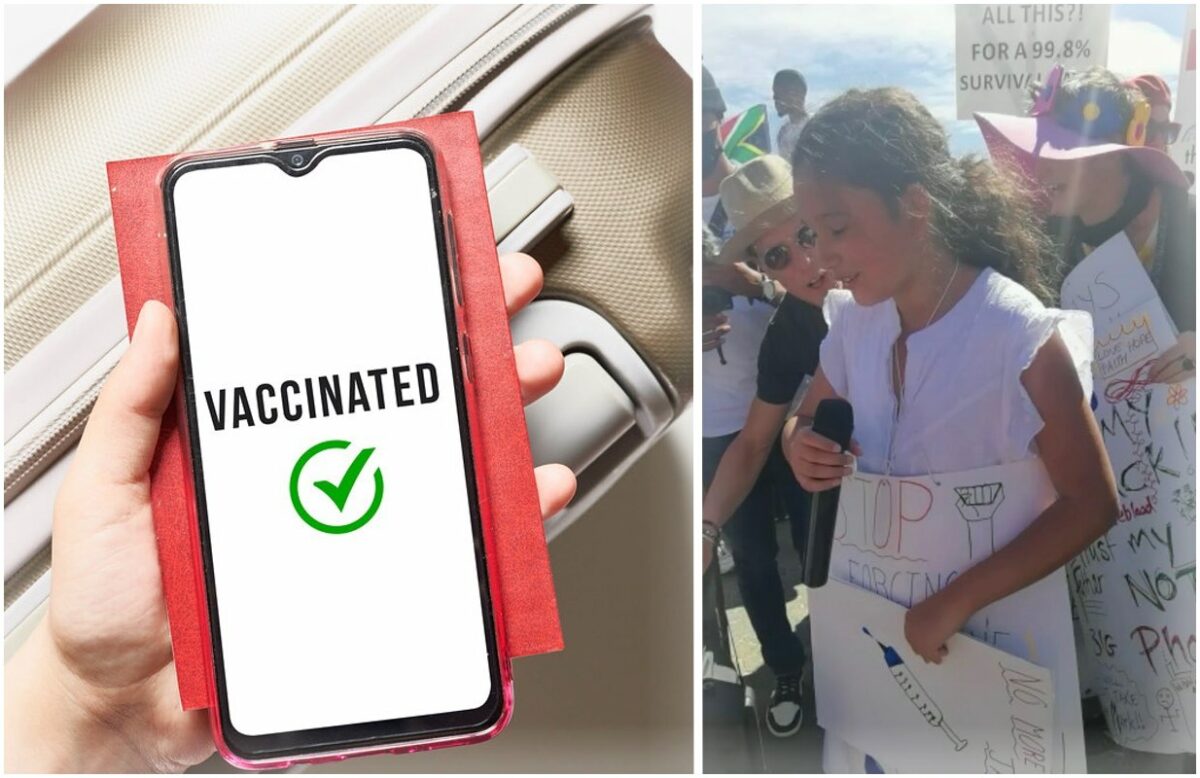Earlier this year the World Health Organization (WHO) published a guidance document on the introduction of a digital vaccine certificate, also known as the Digital Documentation of Covid-19 Certificates: Vaccination Status (DDCC: VS). This certificate serves as one’s proof of vaccination. It can be stored in a smart phone application or on a cloud-based server. It is cautioned that this would require people to acquire smartphones and / or computers. The WHO has advised states to establish policies for appropriate use, to protect individuals’ data and the governance of the DDCC: VS.
Since its introduction, many states have implemented their own versions of the vaccination certificate. The European Union’s (EU) digital COVID-19 certificate, often referred to as the ‘health pass’, was established by the European Commission in an attempt to offer safe travel during the pandemic. This document is issued to those who are fully vaccinated by one of the companies approved by the European Medicine Agency. This includes Pfizer, Moderna, Janssen, and AstraZeneca. In France, for example, the health pass is required for access to cafes, restaurants, and other spaces. The French government has recently suspended 3000 health workers who failed to get vaccinated before the government-mandated deadline. These suspensions remain temporary.
In the United States, , President Joe Biden announced the Employer Mandate via an executive order for all federal employees and federal contractors to be fully vaccinated. Businesses that fall within the scope of the Employer Mandate need to implement programs that require their employees to be fully vaccinated. There are already over 1000 US public and private colleges that have made vaccination a requirement for their students and employees.
During a televised national address on September 12, 2021, South African President Cyril Ramaphosa, announced the Presidency’s intention to introduce a “vaccine passport” despite widespread COVID-19 vaccine distrust. The president stated that the reopening of the economy and preventing a fourth round of infections, require vaccines for the adult population.
He stated that government would provide further information regarding the approach that will be taken as it needs to meet with representatives of business, labour and communities. During this meeting a framework will be created on how to mandate vaccines for all workers. This framework may include guidance on how to isolate unvaccinated workers, the possibility of firing them, the probable submission of weekly Covid-19 testing and whether they would have to incur this cost personally.
Companies like Discovery have already made vaccinations mandatory for their employees. Discovery states it will make its buildings “vaccinated-only” zones, which means that whether one is an employee or not, one would have to show health status through a Covid-19 test or other means, in order to enter any of the buildings. The private school Curro has followed suit. Sanlam, Africa’s largest insurer, is in the process of drafting a policy for mandatory vaccinations for its South Africa operations. The policy will make provision for “exceptional” cases.
The introduction of the mandatory vaccine passports directly contradicts Ramaphosa’s statement made on February 1, 2021, when he assured the nation that people’s movement would not be limited if they chose not to get vaccinated. Despite this, the country’s tourism industry welcomes this decision as it has been battered by the lockdowns. The director-general of the Department of Tourism, Victor Tharage, stated that the passport should only be rolled out for travel purposes once data can be shared accurately and a uniform approach to regulations is taken. The Department of Health has concerns that the vaccine passports may result in potential fraud and unfair distribution of vaccines.
There has been growing opposition on social media to the notion of a “vaccine passport” as South Africans are calling it a violation of their civil rights. There have been calls for protests against COVID-19 vaccinations in general. The first took place in August outside the Groote Schuur Hospital and was followed by another on September 18, 2021 in Sea Point. According to News24, the Western Cape police opened a case after 600 people illegally protested in Sea Point. It is worth noting that the protests were peaceful, there were no damages or injuries, and no one was arrested.
South African universities, stadiums, gyms, and restaurants may restrict access to the unvaccinated to comply with the Occupational Health and Safety Act of 1993, just as government can on grounds of public health. It is worth noting that universities are governed by the Higher Education Act of 1997 and their own individual statutes. These statues allow university councils to govern the institution and make binding rules on its staff and students. This is where their legal source of power stems from. Workers may refuse the vaccinations in terms of their Constitutional right to bodily integrity. Stadiums, gyms, and restaurants have the power to decide who accesses their premises under common law, as they may own the premises or have powers under a lease or legal agreement to do so. This right is ensured under the right to property guaranteed in section 25 of the Constitution. This power is often illustrated by the “Rights of Admission Reserved” and the “No mask, no entry” signs.
The only constitutional right implication in restricting access is the right to equity in section 9 of the Constitution. This section talks about the right to not be unfairly discriminated against. The inquiry into unfairly is whether this right may be limited in terms of section 26 of the Constitution. This decision must be rational, reasonable, and justified. So where to from here?
There is no correct answer. Government and other stakeholders need to engage in deep dialogue, consider all possible outcomes and decide on a way forward. This decision should not be taken lightly as it will affect people’s health, livelihoods, and the nation’s future generations.

